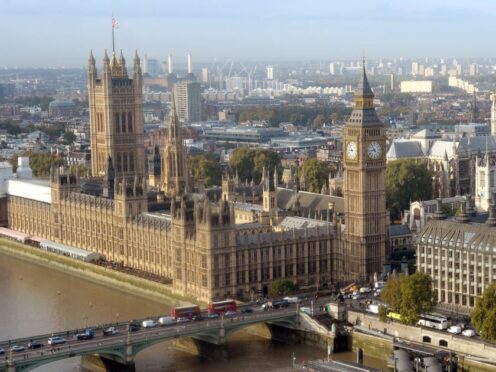MPs would be barred from attending Parliament if charged with a violent or sexual offence, rather than after an arrest, under watered-down proposals.
The House of Commons Commission has been working on establishing a formal arrangement for banning MPs from the parliamentary estate.
In December, the commission proposed that if an MP was arrested on suspicion of committing a violent or sexual offence, then a risk assessment would take place on whether they should no longer be allowed to attend the Palaces of Westminster.
But Commons authorities have confirmed that the threshold for a ban has been changed to the “point of charge rather than arrest”.
MPs will be given the opportunity to debate the plan.
A Commons spokesman said: “In December 2023 the House of Commons Commission published proposals for a risk-based exclusion policy for members who have been accused of violent or sexual offences.
“These proposals have been discussed further with members and other stakeholders.
“In their meeting this month the commission agreed to support a new motion being brought forward by the Government on risk-based exclusion at the point of charge rather than arrest.
“It will be for the House of Commons to decide whether to accept these proposals.”
The 11-member Commons commission is made up of lay people and senior MPs, including Commons Speaker Sir Lindsay Hoyle, Commons Leader Penny Mordaunt and her opposite Labour number Lucy Powell.
It has proposed establishing a formal system for what has become known as a risk-based exclusion process, which would define the threshold at which MPs face being banned from the parliamentary estate.

MPs are currently only prevented from attending Westminster by voluntary arrangements with their own party whips under such circumstances.
The proposals were debated in June 2023 and were updated in December, with Ms Mordaunt provisionally scheduling a debate on March 4.
But she made no mention of the debate in her weekly business statement ahead of that date and later said some MPs had raised “serious questions” about the motion tabled.
Earlier this month, Labour leader Sir Keir Starmer used Prime Minister’s Questions to urge Rishi Sunak to bring forward a vote to approve measures to exclude MPs arrested for serious sexual or violent offences.
Speaking after the publication of part one of the Angiolini Inquiry, which found chances to stop Sarah Everard’s police killer, Wayne Couzens, were repeatedly ignored and missed, Sir Keir said the delay in holding a vote meant Parliament was “failing” to create “a safe workplace here in Westminster”.
Under the original plans, a risk assessment would take place when the Clerk of the House is provided with information from the police about an MP who is subject to serious allegations – which the commission had said would be “in practice on arrest” – relating to a violent or sexual offence.
The commission will now recommend that the threshold for consideration to be banned should be when an MP is charged with an offence.
A panel, which is expected to include senior MPs, would carry out a risk assessment based on information from the police, alongside any existing voluntary arrangements for the MP to stay away from Westminster.
